|
Do you have a dream or a desire or a habit that you want to change? But you've been sitting on it and you haven't? In this blog, I’m sharing about a common question I ask clients, “What are you waiting for?” You have something a dream or desire a habit that you want to change, but you're not. Why are you doing it? What the problem is causing now that you're not doing it? What you're missing out on and what you can actually do to get moving? This is what I'm going to be exploring today. (Sidenote: Doors for She's Goaled 2.0 are open right now. It's your speed course to reach your goals. A six-month program to give you coaching and mastermind support, and a group of like-minded women to help you reach your goals.) What are you waiting for? I coach people. I have powerful conversations with people I meet. As a speaker, I chat with people in the audience. What I've been finding is people very often want to do something.
But they just don't do it. If it's a habit, then it's something like…
Whatever it may be, the question I want to just scream out is, “What are you waiting for?” Sometimes I have to ask myself that tough question, too.
Ask yourself these questions:
When you're in that place of not doing something that you really want to do, you're telling yourself…
The saddest thing is when people get too old or too struck in responsibility or lack of that they're just not able to do it. There are different people I meet who eventually have mobility issues, health issues, or a loved one was taken too soon, and they don't get to realize the things that they really wanted when they were younger or healthier or really desired it from the beginning. So what are you waiting for? I'm going to say that many, many times in this blog. The psychological or practical factors that are stopping you from taking action towards your goals There might be some psychological or practical factors that are stopping you from taking action towards your goals. Maybe you want to do this big trip, but you just don't have the financial means. Maybe you want to quit your job, but you're the sole breadwinner, and it's pretty scary to think about leaving your job to have the lack of stability in your finances. I get that. I get that you might have health issues that are stopping you. But there's always one way or another to do it or a modified version of the original desire. Let's really figure out what are the psychological or practical factors that are stopping you from doing what you want. Maybe it's a lack of clear goals: When you don't have those specific, achievable goals, it can feel like you don't have any direction, any focus, and then you lose motivation. If you have clear goals, you're going to have a roadmap and reasons to act. But if you don't have clear goals, you're going to suffer from overwhelm. You're going to be overwhelmed by how big the task feels. Most of the time, it's just an unknown factor. I didn't know what it would be like to write my first book and publish it. Now, no problem. Hand me something, and we can bang out a book in a few days sort of thing. It's not an overwhelming feeling now, because I've been able to know the scope of the actual project. But you might feel overwhelmed because you have poor planning, you have unrealistic expectations or even a lack of prioritization. You don't have clear goals and a clear plan, so you feel overwhelmed. Habitual Inertia: Maybe you're also trying to take it all on yourself. Now, if it's around habits, you may be afraid of change or kind of opposed to change. Something called habitual inertia where you stick to these familiar routines, familiar habits, even when they don't serve you, because it's easier than changing. For me, it's like, I'm not a morning person. Well, maybe if I just got myself to bed earlier then I could get my butt out of bed in the morning. Is it really who you are? People say, “Oh, I'm not a planner.” Well, could you learn how to plan? Because you've learned a lot of things in your life: to be able to eat and walk and dress yourself and have good hygiene. There are a lot of things that you've been able to do. I get the change. It does require us to give some effort. Sometimes change also means we don't know the outcome. But really, we also don't know the outcome of reaching a wonderful goal, desire, or habit that we want to make better. Isn't it worth the effort if we know that there's going to be some sort of payoff? Poor Time Management: Another reason why you might not be going to do what you wanted to is you're prioritizing everything else instead, and you have poor time management. Let's be honest. If you're playing games on your phone, if you're watching Netflix, if you're kind of pushing papers around, checking out social media, maybe that's why you don't have time to do the things that you really desire. Other things that are causing you to have poor time management, like procrastination, that's maybe another reason why you're not going for it. You're delaying tasks that need to be done. You're putting them off. Maybe it's because you have no motivation. Maybe it's because of another reason like you have a fear of failure: Is that what you have? It could be. When you have a fear of failure, you don't even want to try it. Or worse when you have perfectionism, you don't want to finish it. You put all that work in, but you won't finish because it's not going to end up the way you imagined it. But the sad thing I see is that people don't spend the time or invest the time to figure out, “What is stopping me? What am I waiting for?” My clients that come to me and I ask them this question, bravo, amazing. They're exactly where they need to be because they're getting the support to get the awareness. Understanding the reasons, the barriers, and the obstacles, is the first step in overcoming them. Awareness is key. As soon as you have the understanding that this is a psychological problem that you're dealing with, you can then address them. You can then focus on them and be able to have some practical strategies and mindset changes to be able to get through it. What you can do I don't want to just give you the problem and point this out in your life without some action items. Really, I'm hoping I stir something in you because I'm sick of seeing people living in black and white, living in a place where they're not where they want to be. They don't have joy, and they've lost their spark. I want you to have what you've been waiting for. But to have it now. First, figure out, “What's the thing that's stopping me?” Maybe it's the list that I've shared. Maybe it's something else. Having a session with a coach like me can really help to pull out the true answer here. The next thing is, once you've figured it out, I urge you find someone to support you through this. It could be a coach or a counsellor. You need some accountability to be able to move forward. Seek support. What you can do is just take one small step. Figure out what's the desire, the habit, or the thing you yearn to have be different or to have in your life, and then come up with what's the very first step. Once you know what the first step is, and you know 150% can go for it and achieve it, then just commit to that, and do that. Then at that point, you're going to gain confidence and motivation, which are actually two other pieces that could be holding you back and causing you to wait for what you want and to wait for going for what you want. I challenge you, as you're reading this, to be thinking, “Okay, what is that first step?” Get some clarity on that first step, and reflect on, “What is stopping me?” I'd love to hear love to hear from you. What is the thing stopping you? Is it procrastination? Is it perfectionism? Is it a lack of resources? Is it…
I'm glad I wrote these down because there are so many of them, and there are more. These are just some of the main ones that I see. I don't want for you to be in a place where you say…
You have an opportunity to realize what you've wanted and to not wait for it anymore. Let me know in the comments or shoot me an email diane@dianerolston.com. Share with me the thing that you've been waiting for. What is the thing that's been holding you back from getting it? What is the first step that you're going to take? Again, doors are open for She’s Goaled 2.0. I encourage you to jump in and have us support you in reaching your goals, desires, habits, and dreams that you've been wanting. Because you'll have the accountability, you'll have the coaching support, you'll have the group's mastermind support, and you'll have timed actions so that you can move forward. That's really what I want for you. Because you are brilliant and you have great skills and talents and the world needs to see more of it. You need to be able to invest in yourself so that you can have the life, the business, the career, the family, and all the areas of life to be how you desire them to be. Until next time, stay dynamic. Read my other blogs:
0 Comments
This is the third part in a three-part series about being a collaborative author. In this one, I'm sharing the five reasons to be a collaborative author when you have a book or are currently writing your own, or have been in a collaborative book (You can read the first two parts of this series where I shared about the three ways you’ll get left behind by NOT being an author and what to look for in collaborative book opportunities.)
Leadership Secrets is coming up in the next year. Our first call for authors closes, April 17 at 11:59PM, where we have the opportunity for 18 women to jump into co-authorship with us. This is part of why I'm doing this three-part series. On April 15, we also have a training called Collaborative Author 101: How to Explode Your Audience, Establish Your Authority, and Leave a Legacy by Entering the World of Co-Writing. If you missed it and would like a replay, please reach out to team@dianerolston.com as soon as possible so that we can see if we can get that to you. Depending on when you reach out, we might even be in our second call for authors or we might be able to squeak you in the first. We'll see. No guarantees. There are so many benefits to being in a collaborative book, and we offer so many bonuses when you’re in Leadership Secrets. Now, here are the five different reasons to be a collaborative author, even if you're already an author, or you're writing your own book. These are also for you if you were already part of a collaborative book. You might think, “Well, I'm already an author, why bother?” Well, there's actually a strategy for why to be an author. I've been part of collaborative books from other people, and even if they don’t have all the strategy pieces that I want, there’s still some benefit to it, and I still do it. You can read my previous blogs where I talked about what to look for in collaborative book opportunities and the previous one to is about the three ways you'll get left behind by not being an author. But today, I want to speak to those who have had a book, who are writing their own books, or have been in a collaborative book and are thinking, “Why would I bother being a collaborative author?” I'm going to talk through these five pieces. Because I'll tell you, I felt the same way. Reason 1: It's a jumping-off point. Some authors who have been part of Dynamic Women® Secrets Books have used this as a learning opportunity to then jump off and do their own solo book. They’ve been able to build confidence as a writer and also be able to say, “Okay, I'm a collaborative author, and this is the first book and now I'm going to be a solo author of my own book.” Then they go on to do their own. If you're writing your own book, now's a really great time to invest in this type of opportunity with us because you're going to be able to have our book come out, and then your book. Sort of like “Bam, Bam.” You get to leverage my network and our promo to then position your own book. Here's a little bonus tip: You can bundle the books when you go to sell them as a way to make even more money to get a double sale rather than just a single sale. If you already have a book that's out there, then you can use this opportunity to link it back to your book that you've already done. Cool, eh? Reason 2: To plant the seed. If you're currently writing your own book, then you want to plant the seed to the readers that your book is coming out. You can plant the seed forward to the next book or you can plant the seed backwards to a book that you've already done so that the people reading this collaborative book with us can go back and purchase the book that you've already done. Planting the seed for a future book, a past book, or a current book is a really amazing reason to be a collaborative author. I've done that a bunch of times. In one book, I talked about being a Dynamic Woman. Then I linked it back to the Dynamic You™ Book. I've also been in another one where I talked about the importance of celebrating our successes and linked it over to the Dynamic Year journal. You might even write your piece as something that will open up an idea that is then more thoroughly talked about in your own book or in another collaborative book. There are different ways. I can even write in someone else's collaborative book about the importance of being a collaborative author and link it back to my opportunity. It doesn't even have to be directly to the book. It could be to other opportunities or offerings. Reason 3: To build your audience. How do you build your audience? Well, the obvious one is you’re building your audience with the readers who buy your book from you. You're also building your audience by the other authors selling it to their audiences. Plus, you can build your audience by leveraging your own social media promotion before the book even comes out, and when it’s out. What you might not have thought about for your own book or even with a collaborative book is to share the content from other authors or commenting on their posts to gain more connections and followers. What you might not have thought about for your own book is the power of the publisher, in this case it’s me, promoting you as an author to my network. As I mentioned in my previous blog, you want to be looking for full promo from a collaborative book opportunity. It’s them promoting you and also giving you lots of promo materials for social media, emails etc. that they have designed personalized to you. That's a really key thing and strategy. That's something we teach in our book opportunity. Reason 4: Build your network. You might be like, “What's the difference between audience and network?” Well, if we think of audiences, these are people who could buy from you, who do buy from you and leads. Then we talk about networks. Yes, that could also be leads. Yes, that can also be potential customers. It can also be your audience. But I want you to think of it differently in the way of network by connecting with a network of authors. You are an author. Now you have permission to reach out to the other authors. Obviously not a salesy or creepy way. You can be like, “Hey, I'm an author in the Dynamic Women® Secrets Book. I'm secret number 13. I see you’re secret number 28. Let's connect.” Now, you're connecting, not just as maybe an expert in your topic, but you're connecting as authors. Connecting on another level, and even though you've maybe already been part of a collaborative book, this is a new set of authors. Even if you've written your own book, this is now you connecting with other authors. It's always important to continue to expand your network, grow your network, and build your network, so that you can continue to build collaborative opportunities, joint ventures, affiliates, referral partnerships, all of these things to move your business forward. If you don’t grow your network, eventually, by having just the same group of people, you're going to hit some dead ends, and your lists are all going to start being the same. Reason 5: Being relevant. You need to continue to add to your achievements and your bio with a current book. I don't lean on the power and the success of my solo book back in 2017. I'm constantly putting out books or being part of books so that I continue to be relevant. I continue to be on people's radars like, “Whoa, you're an author again. Wow. Cool.” The ability to say, “My latest book” is powerful, and then in selling this new book, you can bring in your old books and bundle them. Authors, if your book is over a year old, you need another book. You need some fresh readers. There's so much strategy that can be used here around being a collaborative author. That's why I continue to be a collaborative author, even though some of the opportunities don't hold all the things I really want in collaborative authorship opportunities. Wrapping Up These five reasons: a jumping-off point, planting the seed, building your audience, building your network, and being relevant - are game changers in your business, to get the message out there, to be able to bring business back to you, and really, to stand apart from other people in your industry. I hope you'll consider joining the Dynamic Women® Leadership Secrets book. Check in with us to see if we still have opportunities depending on when you read this and go back and read the other two parts of this series so that you can really get all of the information to make the right choices about being a collaborative author. Also, invite your friend to be an author with you. That's a really cool opportunity as well as growth for you, your friend, and for your friendship as you both move up in the world in the same book and make a change in other people's lives. Read my other blogs:
This is the second part of a three-part series about being a collaborative author. You can read the first part here. In this blog, I’m going to be covering what to look for in collaborative book opportunities. Collaborative book opportunities To kick things off, I want you to know that there are many collaborative book opportunities out there, mine included. After publishing five of my own books, three of them collaborative in the Dynamic Women® Secrets Series. We have Success Secrets, Confidence Secrets, and Trailblazer Secrets, and now in the next year, we're going to be launching Leadership Secrets. I also have my Dynamic Year Journal, my Dynamic You book and I’ve been in six other collaborative books. I don’t share this to brag, I share this only because I have learned a lot about the process: writing, editing, formatting, layout, editing, publishing and promotion. I have learned what to do, what not to do, and really what I look for in collaborative opportunities. All of them are basically going to have done-for-you options, meaning you submit your piece, and they put it in the book, and they publish it. But there are many other things to look out for. This is true in the way that I look for opportunities, but I'm also noticing I've even joined books that don't have all of these opportunities. There's a different reason why I'm joining, but I don't get the full ROI (return on investment) when I am part of these book opportunities. I do it for different reasons. I won't fully go into that today. I want to let you know some things that you can look for. One of my collaborative authors in this new Leadership Secrets book came to me and said, “You know, Diane, I was part of another collaborative book, but I just didn't like how it was going, so I actually dropped out and asked for a refund. Now, I'm joining your book because I see the opportunities here and I see the different levels of opportunity that you're providing for my investment.” Side note: We have a Call for Authors right now for Leadership Secrets and we have 18 spots for authors to jump in. There will be special perks for this group, but some spots are already taken and doors close April 17th at 11:59 pm PDT. If you’d like more info, then join us on April 15th from 1-3:00 PM PDT, we are going to have a free training called “Collaborative Author 101: How to Explode Your Audience, Establish Your Authority, and Leave a Legacy by Entering the World of Co-Writing”. We're doing two more Call for Authors throughout the year. But this group will have most of the perks. I encourage you to check it out to be part of this opportunity. Who is this opportunity good for?
The 3 things to look for in collaborative book opportunities #1: Strategy Support You're looking for strategy support. Now what do I mean by that? Well, I've been in books before. I joined, I paid the investment and then it was, “Okay, you need to submit your piece within 10 days.” Or “You need to have your piece in by this date.” What I would love to see happen more and what we do in our book is we offer a course called “Book Writing Strategies.” You get an idea-generating session with everyone to talk about what you could write about, so it’s easier to write your piece. Then we look at the “Book Writing Strategies” where you get strategies on what to write and how to write it to boomerang business back to you: leads, clients, sales, and opportunities. Then that gives you the best ROI. There are a lot of different things I’ve learned over the years and in being part of six other people's collaborative books and three of my own. There's a lot of strategy in how to write your piece, what to put in your bio, what your title should be, and which links to use for readers to connect with you, each part of your piece is important so you can boomerang business and opportunities back to you. There's a lot of strategy that goes into every word. You can choose to just write your piece and submit it and be done. But I really think that if you're looking for a collaborative opportunity to be part of a book, you want to get that outside view of what’s possible.
be a big part of the opportunities that you say yes to. #2: Full promotion What I mean by full promotion is in two pieces: 1. The publisher, or whoever is providing this opportunity, gives you promotional assets. I say full because you get your book, and then you say, “Now what do I do with it?” What we do on our team is we do something called “Author-in-a-Box” where you get all the promo assets needed to properly promote the book. We provide you with the sales sheets, PR press release, and all the promo, including stories, videos, graphics, and everything. Not just, “Here's the book” and it's generic for everyone, it is personalized for you, your name, your image, and the ability for you to do that with the videos and other pieces. It's a full promo. It’s personalized. It is about you being announced as an author, promo for the virtual book launch party, as well as more promo for when the book is out to help you sell it. That's what I see as a full promo. You’re provided with the copy, the images or graphics, everything, so you can just copy and paste, basically because we want it to be easy for you. That’s why we call it “Author-in-a-Box”. It's super easy to just copy and paste into your email, onto your social media, or wherever you want to put it. 2. The other side of this is actually that the publisher is promoting you. I think the publisher should be doing this by promoting all of the authors and their names, not just an image of them on a banner or something and no one knows who they are.I announce that everyone is an author on multiple platforms of mine, like LinkedIn, Instagram, and Facebook. It's on my banners I promote on my social. You need both sides for it to be full promo. Then the publisher promotes the book to their network and encourages all the authors to do so with the opportunity for wholesale copies. #3: Wholesale copies This is definitely something you want to be looking for, the ability to purchase wholesale copies. If I give you copy and images to promo, then you can easily promote the book, sell the book to your network and make money off of it. Imagine making 10-20 bucks per book or using the book in a way that's going to help you bring in more clients, more opportunities, and more checks. That's key, right? If you have to buy the book retail from the publisher or Amazon then you are not making money off it unless you raise the price, but you wouldn’t since it’s listed as lower elsewhere. This also stops you from being able to gift the books cheaply or using them strategically to for leads. Bonus: Another thing that you want to look for in an opportunity that encourages you and teaches you the ways to sell the books and bring more business and cheques back to you by using the book. I do a training that gives you 20+ ways to use the book to bring in clients, opportunities, money, and sales. These are all proven things that I have done in my business. It’s really crucial that if you're going to invest money in an opportunity to be a collaborative author, you want to have opportunities to bring the money back to you and to get a really good ROI. Wrapping Up When you're looking for that collaborative book opportunity, you want to look for a publisher who’s giving you strategy support, the full promo, personalized promo for multiple parts of the book process, as well as wholesale copies so that you can make money off of it and teaches you how to use the book in different ways to bring business leads and money back to you. If you want to be part of our next collaborative book called Dynamic Women® Leadership Secrets, apply here. We have open doors right now until April 17. This is our first call for authors. I encourage you to jump in now. The best perks will be now. On April 15, we have a training called “Collaborative Author 101: How to Explode Your Audience, Establish Your Authority, and Leave a Legacy by Entering the World of Co-Writing”. You can join by registering here. It’s free to attend. If you have any questions reach out to me, diane@dianerolston.com. Stay tuned for the next blog (we are dropping right now) where I talk about the “5 Reasons to be a Collaborative Author When you Have a Book or You're Writing Your Own Book”. If I can say so myself, I share some really cool strategy in it as well. Read my other blogs:
Today, I will share about the three ways you'll get left behind by not being an author. This is part one of a three-part series about being a collaborative author. In the next two blogs, I’ll cover what to look for in collaborative book opportunities and the five reasons to be a collaborative author even when you have a book or are writing your own book. Sidenote: Doors are open for our first call for authors for the next book in the Dynamic Women® Secret series. The book is called Dynamic Women® Leadership Secrets. Our first call for authors is closing on April 17, at 11:59PM PDT, and we’ve opened 18 spots for this round. There are bonuses and benefits to being in this first group. If you’re interested and want to learn more about this opportunity, you can come to our info session happening on April 15 at 1 PM PDT where I will share about, “Collaborative Author 101: How to Explode Your Audience, Establish Your Authority, and Leave a Legacy by Entering the World of Co-Writing”. The Three Ways You’ll Get Left Behind by NOT Being an Author These ways are for all people including those who…
#1: Competitive Edge I wrote my first book seven years ago called “Dynamic You: The Nine Pillars of Being a Dynamic Woman.” Being an author is still very special, but things have changed because more books are being put out. It is a little bit easier to self-publish these days, rather than having to find a publisher.
I hear, “Well, why would you go and be in other people's books when you can just publish more of your own?” There’s a strategy in all of this. There's a reason why I do all of these things, so watch out for my next two blogs in the coming weeks because I will go through the reasons why I continue to be in books. I've now put out one solo book, three Dynamic Women® Secrets books - Success Secrets, Confidence Secrets, and Trailblazer Secrets. I've also put out the Dynamic Year journal. That's me doing five of my own, then I've been in six other books that other people have put out, and I'm going to be signing up to be part of yet another one. That competitive edge is what you want over other people in the industry. I'll talk about how that comes into play in the second way. #2: Expertise and bio depth. You may think, “Well, I'm not quite an expert at what I am doing.” Or you may believe, “Well, I am an expert.” That's okay you both can be in a book. Being an author…
Adding that you're an author, a collaborative author, and an author again, is a benefit that can move you ahead of others. As I said, almost everyone will have a book in the next couple of years. Then it's since most people have at least one book or have been in one book, you’ll need to have more. When I get introduced to go and speak and they say, “10-time bestselling author”, that's pretty impressive. I'm not saying you need 10. But 1, 2, or 3 would be wonderful. Expertise and bio depth come into play when your leads and clients are looking at their options. They're weighing options. “I’ve got this person, that person and one other person to consider.” You're one of three, one of two, one of 10. Who knows. If it's between you and these other people, they will start weighing the bios and the expertise. As soon as they see someone has a book, that they're an author, or they're an author in something and other people aren't, that's one thing that can make your competitors stand out compared to you. Also, it can help them to be seen as the expert, even though you might have more expertise than they do, and will give them more bio depth than your bio. Even if you have been published, if you don't have a recent publication, then that can also put you down if someone else has a recent book that's come out. We're going to see that in LinkedIn, as it's put up as a milestone. There's new energy around that. #3: Missing out on opportunities You may think, “Well, what opportunities?” In my training that I've done about being a collaborative author, I talk about 10 to 20 ways of benefiting from being in a book or putting out your own book. Some of the ones that you're going to be missing out on are opportunities like speaking engagements. Being asked to speak because you're an author and expert on a topic. If you're not an author, you can’t join authors’ groups or be brought on to podcasts about being an author, or about the book that you're in. Those are some of the key benefits you’ll miss out on as well as summits. I get invited into summits and podcasts because of books that I've been in, because they found me that way, or they've been justified in asking me because they see that I have books for sale on my website. The last piece around missing out on opportunities is list building. Now, with list building, there are multiple ways you can be doing it:
There are so many different ways that you're missing out on opportunities by not being in a book. You don't want to be left behind, especially because I'm sure you're doing such great work in the world, that you're super passionate about, and you can help people with your products and your services. Wrapping Up I’m guessing you now see how you want to have that competitive edge. You want to have expertise and bio depth. You don’t want to be missing out on opportunities. You don't want to get left behind by not being an author. I do provide a very simple, easy and affordable way that you can be an collaborative author. As I said, the call for authors is closing April 17th, 2024. You can go here to learn more about this exciting opportunity! There is an investment because we do have to pay for editors, the design team, the layout, the promos, and all the other pieces that we do. There is a very minor investment, I would say, in being part of this amazing opportunity. You can also join us on April 15 to learn more. We do have an amazing new training that I'm doing called, “Collaborative Author 101: How to Explode Your Audience, Establish Your Authority, and Leave a Legacy by Entering the World of Co-Writing”. I encourage you to jump onto that or reach out to me diane@dianerolston.com if you have any questions. Read my other blogs:
Are you feeling tired of having to be on a treadmill towards your success and continuing to go after results and milestones, and it's still never really good enough? Today, I'm sharing about stopping measuring your life according to your success. This was something I had to learn about many years ago as a recovering perfectionist and as someone who's highly driven and A-type. Maybe you can relate. It was always about…
But I often felt tired, unfulfilled, and empty. It's really sad I felt that way even though I often achieved what I wanted when I was younger…
I'm not saying that to brag. I'm sharing the pressure. I had the feeling of, “You have to do these things.” There was no doubt from others I’d perform and no discussion I'd be going to university. I continued in my life with goal after goal and result after result and asking myself, “Can I be the best at everything?” The greatest gift I received from my first coach was her helping me see that I was measuring life according to success when she introduced me to the wheel of life, which is a professional coaching tool. It is now a nonnegotiable, something that I go through every quarter, and then I take my clients through as well. Switching from measuring your life according to success to measuring life according to your satisfaction was a complete game changer for me. I hope that if you haven't already heard of it, you go and do it or you reach out to me so that we can do it together. When you measure your life according to success, you will always be chasing success. Because the moment you achieve success, you probably won't fully celebrate it. You'll just look for the next goal or the next piece of success. Success is fleeting because…
Everything is a moment in time. What happens all the other days? Well, if you measure your life according to your satisfaction, then you can have success, not just when you're having the success, not just the moment you decided, but you can have happiness now, you can have happiness later, and you can have happiness every single day on the way to success. Recently, I spoke at the LEAP Conference put on by the Vancouver Regional Construction Association (VRCA) and Canadian Construction Women (CCW). They hosted this event, and I asked the audience, “Do you want to have happiness now or happiness later?” People were like, “Oh, I kind of want both?” Yes, it's like in construction. If you said to a homeowner or a soon-to-be homeowner whose house you're building your house, “Hey, do you want to have floors or ceilings?” They’d answer, “Don’t I want both and walls in between?” You do, right? You want success now and happiness now. You want happiness every single day and you want happiness and success on the day you feel like you're successful. But what's happening is we get into the success trap, where we're striving and pushing and working harder and ignoring our intuition, our self-awareness, what we want, and that inner voice. We just keep pushing it, pushing it down, pushing down, pushing it down because society is telling us these are the things that you want:
It is friggin’ tiring. Doesn't it tire you out just thinking about all of that? Yes! I have been a victim of that and so have my clients, and I see this in women in my audiences. Have you been as well? The Solution The simple solution is to stop measuring life according to success, get out of that success trap, and instead measure life according to your satisfaction. Right? A life built on satisfaction is happier, more full of energy, more full of confidence for yourself, there is more joy, there is more space, and you get to really honour the things that matter most to you. Because that's the problem. We're honouring things that matter to society. But really, that's society's agenda. It's not your agenda. If you're not even looking out for you, who is? Wrapping Up I encourage you to reach out to me. Let's do my Wheel of Life because there are extra areas in mine, which means extra opportunities for more satisfaction in life. There's a very specific way that I take my clients through. The benefit of it is in the end, it's going to give you a 360 view of where you are in your life in your satisfaction. It's a game changer in the way that we use it to ask, “Where do we want to be?” Not let's look at the sadness of the low numbers now, but where do we want to be and let's use that to paint the picture about what life can look like. Some opportunities for you We had our 1st call for authors for the next book in the Dynamic Women® series. We had Success Secrets, Confidence Secrets, Trailblazer Secrets, and now Leadership Secrets. If you feel like you have something to share there, please apply here. Another opportunity is the She’s Goaled Program 2.0. In that, we’ll use the wheel of life and we're going to be helping you use that as a speed course to reach your goals with coaching masterminding, group support, connection with others. Every single month you’ll be able to reach your goals that much faster and feel much more satisfied in life. Satisfaction equals happiness, energy and resonance PLUS feeling proud, contentment and joy of being where you know you want to be. If you're still struggling around striving for success, let me know. If you want more success, but more ease reach out. You can comment or email me diane@dianerolston.com. If you don’t want to be tired and worn out anymore, you can have success and happiness without having to give of yourself so fully and intensely. You get to take a step back and really decide what works best for you and live a life that has more space, more joy, and more time for you. Read my other blogs:
Have you felt the power of other people cheering for you? Have you also felt the disadvantage and the annoyance of people competing with you? Today, I’ll talk to you about five ways you can cheerlead other women rather than compete. A little background story What brought this topic on was my latest blog where I talked about the things I do after an event. I've been sitting in this fun place of doing a great keynote and getting a lot of accolades. Obviously, I want the clients to be happy. But the ones that impacted me the most were from other speakers and the other women who are my peers. Having them cheerlead for me is really meaningful. I've been in a lot of situations in my life, where people have been intimidated by me. People have felt the need to compete. They maybe went into that place of being jealous and tried to cut me down. Do you know what I found? The more we cheerlead for each other, the more room there is for everyone to succeed, not just a few, but for everyone to succeed. I've got five things that you can do to cheerlead more. #1: Acknowledgments Acknowledging someone else. You can do a simple acknowledgment in four or five words. This is something I often talk about and teach in my programs. Basically, “You are a/an” plus an adjective and then the title. For example:
That can be professional. It can also be around things more personal or around who they're being. For example:
We can go through all these different adjectives, all these different titles - you have many options. The key thing is, that you say nothing after. You’re acknowledging the person for who they're being, not telling them the exact situation or thing they did to get the acknowlegement. It's really impactful when you just say the five words or you change “You are” to “You're” and then it becomes four words. We're starved for acknowledgment in society because everything is about competition. Everything is asking us, “Are you good enough?” The number one limiting belief all rolls down to “You are not good enough” or “I'm not good enough.” To combat that, acknowledgments have such power. These acknowledgments in advance and after are profound. I've been receiving these different acknowledgments on LinkedIn, on social media, on my posts, on other people's posts, and where they tagged me in them sharing what they took away from my talk, or how well I did. I've been receiving them in emails, and just verbally people saying them to me, and I'll tell you, you can never hear it enough. If you think, “I'm not going to go up to the speaker. They've already heard it 20 times from the people who talked to them before me,” still say it. You might say in the bathroom when you see them and walking down the hallway, in an email later, on LinkedIn, writing them a recommendation, whatever it may be, don't miss the opportunity to acknowledge them. #2: Get photos together with the other people That's something I'm very grateful for Michelle Diamond, who did all my photos on the day and does all my photos for my business. When she was at the event, she said, “Let's get photos with the other speakers.” It's funny because a lot of times I get photos with maybe the organizers, the person who put on the event, the hosts, the sponsors, and people who just want a photo together with me, people who bought my book and such. But getting photos together with other people shows that you're cheering them on, and you want to collaborate, or you want to just acknowledge and not be in competition with them. Get the photo and then post it on social media, right? That's cool to do to show, “Hey, this person did awesome, and here we are in a photo.” If you find yourself entering a room, and you're intimidated by someone, or you feel like “Oh, she does the same thing I do.” Why not chat? Then say, “Hey, let's get a photo together.” It could be a selfie or someone else could take the photo, and then just tag them on social and be like, “Hey, great meeting you.” Super simple to do. #3: Connect on social media Since with the photo you have the opportunity to tag them, you can also friend them, be a connection on LinkedIn, whatever it is. Don’t feel like, “Oh, we can't be friends on social because we do the same thing”. We’re all unique and therefore not in competition. Different people hire based on their preferences. That's how wild it is in the different industries with customers. It might be like:
There are so many different reasons. There are no two people who are the same. Just like your fingerprint. Everyone is unique. Connect on social so that you can be in each other's lives. If you do feel that you're triggered by what they're doing because you're jealous or such, really check in with that. Get some coaching on that so that you understand…
Then you can get beyond it. What I found is a lot of times with people I'm jealous of, it's because I'm not moving forward in that area of life, and I wish I was like they were. Or I'm triggered by them because they probably have a quality that I have that I'm either not turning up enough or I feel like, “I could do better by turning it down a little bit.” You're connecting on social so that you can cheer each other on in the future. #4: Liking and commenting on their posts How do you cheer each other on? After you connect on social, you can like their posts and comment on their posts. That's where you can cheer them on. It doesn't mean you have to have them on your podcast or in a book or something. But just hitting the like button is a really easy way for you to cheer on someone else. Even if they're doing a similar thing as you, it is totally fine. #5: Compliment them We acknowledged them, but why don't we also compliment them?
You might be wondering, “Well, what's the difference between an acknowledgment and a compliment?” Oftentimes, an acknowledgment is acknowledging who they're being while a compliment can be more so around what they're doing or what they have done. Compliments often come after the fact and are specific, and acknowledgments can also come before and be more general. Wrapping Up There are your five ways to cheer others on. Which one of these do you think you're going to use more in your life to cheerlead others rather than compete, and which ones are you already using? Hey, you might even have some that I didn't mention. More than likely, and I would love to hear those as well. Comment below! P.S. Are you a leader? Then we invite you to become one of our collaborative authors for the upcoming Dynamic Women Leadership Secrets book! Apply here. Read my other blogs:
I often get asked what I do to prepare for a talk or how I land a talk. Today, I'm going to talk today about what I do after a big talk. It's maybe not something people talk much about. We usually talk about…
But how about what you need to do AFTER a big talk? It’s just as important as the others to your career. Please note: These tips are good for after a big event, project, party, book/product launch and anything else that needed a lot of your energy or time. Here are the three things I do after a big talk: #1: Celebrate: I celebrate that I did a big talk or that I had an event, or I had a book launch or whatever it may be. I celebrate that I've done it. How do I celebrate it? I'm going to give you three main things: 1. I write down the things that I did well or I do voice-to-text on my notes.
I write down all the accomplishments that I had. The reason why I want to do this is because we're so quick to forget or we're quick to point out all the things we did wrong. 2. I share online. I grab some pictures, I write a caption, and I thank the client. I tag some people who were part of it, and I share how the event went. I wanted to tag them. I wanted to share on social that I worked with them, and so that people know, “Oh, okay, she can speak for that industry. She can speak on that topic, and she can open a conference with high energy and a powerful message.” Celebrating publically is super important. This is one of the things I just shared on stage at the LEAP conference for the Vancouver Regional Construction Association (VRCA) and Canadian Construction Women. There is great importance to accomplishments and then sharing our successes with others because a lot of times as women we downplay them or don’t own them at all. (You may have heard me say this before) According to a Business Insider study, also on leanin.org, women and men view success differently. Men attribute their success to their innate qualities and skills. Women attribute their success to hard work, luck, and help from others. How are we ever going to move forward if we don't actually own and share our successes? That's going to help us to elevate and be promoted and to be asked and called upon for, in my case, more speaking engagements and maybe in your case, being a trainer or something else that is important to you in your life and moving your career forward. 3. Capturing any positive feedback and images in a folder. What I did right away was for anyone who shared in their Instagram or Facebook stories or put in their stories, anything about me, then I made sure that I shared it back. Then I also put it in my highlights so that it would be there. But then because I was heading on vacation right away, I asked one of my team members, to go online and take screenshots of any positive feedback, any photos of me, and then save them into a folder. The folder is the date and the name of the talk so that I can go back to it and look at what's there - and probably share them later in other ways. Also making sure we're commenting back on everyone who posted and replied and everyone who posted about my talk, about me, about meeting me, about getting my books, whatever it may be. #2: Recharging
I see that as my “Recharge Day” because I give a lot of energy to my talks on stage and then after the event talking with audience members. I also show up early to do a tech check. I've practiced all week maybe even before. Plus doing my regular work that I take care of, so I see it as a rest day. I relax. I sleep in. I hydrate. I eat really good food. If I'm home, I book a massage or I book some other type of restorative session with a practitioner. I take care of myself. Probably I'm doing some celebrating on that day as well, but recharging is so important. I've given you a list of lots of different things you can do. Even if you can just give yourself a few hours in the morning or have a slower start to your day, it's really helpful. I get that you might have two, three events in a row or talks in a row or projects in a row. Make sure you book yourself off that weekend, or in the evenings, you book yourself off to have a break. #3: Review I don't know if I'll review this week, but I get the recording of my talk, whether it be the video recording, which is ideal, and I transcribe it, and I review the transcription as well. I go over it and review…
Not just my actual stage time, but what did I learn and what did I do well before, during and after? The weeks leading up to it, the morning of or the day of tech check, then the stage, then after, and also when I was on stage, oftentimes, I'll ad-lib. I'll add something that just comes to me at the moment and I want to capture that for future talks if the audience likes it. I might add in new jokes or new one-liners or a callback, which means referencing something I did before, or I'll have some audience engagement. There are things that I will change, so that's another question, what will I change? It's funny because for this talk I had a double applause at the end. There was applause like, “Woohoo, great job!” but I hadn't finished. There were another few sentences and then there was another applause. Because at that point, this was now pushing me overtime, I basically ran off the stage. This is an example of something I would change: I'm going to change the closing to make sure it's one powerful close with one powerful eruption of applause, rather than two of them. Then I'm going to stand on stage, and I'm going to receive the applause and standing ovation. Those are small things that I might change. I review the tape and also when I say I transcribe it, the reason is I want to see certain words that are very important to the way I present. Now, the way I do a keynote is different from the way I do a speak-and-offer. However, I still want the audience to have benefits based on certain things that I say. If you're a client of mine, ask me what those things are. Those are like covert ninja moves that I do from stage. I review the recording and I review the transcription. I see how I did with this talk. It was a new talk. It was customized to the audience, and so there were a lot of pieces that were customized. Now what I'll do is I'll go back, and I'll say, “Okay, what pieces are for that audience, and I have to change them for the new audience and what things can carry forward. How can I tighten this up a little bit better? Do I want to say something else? Did this piece not land?” I'm also going to be listening to the audience's reaction on the video. If I can, because we had multiple cameras, I'm going to be watching their faces to see their response to the different points. If it landed as strongly as I wanted each piece to land or which pieces landed stronger, I'm going to pull info based on what I did. There is quite a bit of analyzing that goes into it, and that's just so I can keep elevating my presentation and my keynote skills. So for this third step, review the recording and the transcription, what did I do well, what did I learn, and what will I change for next time? Wrapping Up Those are the three phases I go through after I do a big talk. But it's the same after a big event. It's the same after a book launch. It's the same after I lead a program or a training. The list can go on. Make sure that after you complete something, you celebrate it because when you celebrate, you're going to get some motivation from it. Take time to recharge so that you're not burnt out. You want to keep going and doing well afterwards because you probably gave a lot to it. We want to pump you back up again. The last thing is to review it. Focus on the good. Grab the learning from both the good and the things you think you can do better on so that you don't wallow in the disappointments of it, that you really pinpoint the good stuff and make sure you carry all of that forward. I hope that you have had a recent opportunity to be able to now go and apply these three things. If not, put a little note in your calendar for the day after this big event, write down the words celebrate, recharge, and review, and give yourself some time in your calendar. I always book myself off so no one is allowed to book me for a meeting or coaching session the day after a big event, a big party, whatever it may be. I hope this was helpful. Let me know in the comments what the best part was. Share this with a friend who makes you think, “Wow, yeah, my friend should do these things. This would be beneficial. I want to see if my friend has done these or these people in my network.” P.S. One of the biggest things I did for 2024 was launching the Trailblazer Secrets book. It’s the third book in the Dynamic Women series. We’re now working on the fourth book - the Leadership Secrets. If you want to be one of our collaborative authors, apply here, and we’ll reach out to you. Read my other blogs:
It's International Women's Day, and how exciting that we get to not only celebrate women on the day, but we get to move our gender forward. Today, I'm going to be sharing about the things you should be doing around this time, the ways you can be, and the things that you must be doing for us to be moving forward as women. We have lots to do if we are going to be moved forward as a gender and be able to have gender parity and equality before the year 2154, (which is the year that has been estimated). It’s definitely not going to happen before I die, but what if it could? What if we looked at appreciative inquiry and we said,
We amplify that. We multiply that by many. I’m going to share nine things today: three things you can do, three people you can be, and three things you must do. 3 things you can do #1: Attend an event Well, firstly, for International Women's Day, I don't know how many events are happening. Maybe hundreds, thousands, or millions. Attend an event, whether it's in-person or online. Be there to be educated. Be there to hear and to support. Just attend an event. I'm always getting multiple invitations. This International Women's Day, I am very honored to be speaking for the Vancouver Region Construction Association for their International Women's Day event called Leap. I'm going to be talking about leaping forward and the tools that we can use to be able to break barriers and elevate success. #2: Implement one action Just one action. What's one thing you can do that will help to move women forward?
There are so many different things that you can do. You don't need to look to me. Go attend an event. You'll find something out. It might even just be something that moves you forward. #3: Educating yourself just 1% more In putting the final details on my presentation that I'm going to be doing this week, I wanted to grab some stats. I am in Canada, so I grabbed a bunch from Stats Canada. I'm going to let you know them so that you can educate yourself and know 1% more. 89 cents is what women working full-time and part-time make for every dollar men make. That's from Stats Canada in 2022. I like to think it went up, but not sure that it actually would. The next one is women in Canada hold about a third, to be precise 35.6%, of management occupations, then only 30.9% of senior management level occupations. This is from Stats Canada 2022 as well. One of the first times I heard a stat that just astonished me was that there are more CEOs named “John” than there are female CEOs. That really ticked me off. That's part of why I talk a lot about women's empowerment and confidence, and I want women to talk more about their successes so they can be seen as the ones who are a perfect fit for the job. I wish they wouldn’t be so humble and downplay their accomplishments. I'm not blaming women by any means, that is why I do the work I do. The reason why we have Dynamic Women Global Community is because I want women to be able to feel confident to step into these roles, and not wait to be asked. Another stat is, according to Stats Canada from 2019, one and a half million women live in poverty in Canada. The horrible thing is, a lot of times, these women are also single mothers, and so their children suffer as well. That's not okay. Let me give you one more stat, which for me was pretty shocking. Everyone talks about the glass ceiling, but there's actually something called the “broken rung”, meaning the rung on a ladder. It's actually just that first step, that management role, that rung is often quite broken, meaning women aren’t getting into that role so they're not even able to move up the ladder, which is pretty sad. Here's the stat that goes with it. “For the ninth consecutive year, women face their biggest hurdle at the first critical step up to manager. This year, for every 100 men promoted from entry-level to manager, 87 women were promoted. That's 13 less, and this gap is trending the wrong way for women of color. This year, 73 women of color.” It’s 14 less than what I'm guessing they're saying is Caucasian women. “73 women of color were promoted to manager for every 100 men, which is down from 82 of women of color last year.” Crazy. This is as a result of the broken rung. Women fall behind, and they just can't catch up. There's also mommy's penalty, meaning that when they leave the workforce to have children, then they come back, it takes them 10 years to catch up in their pay. When men leave to take care of a child on paternity leave or when they have a child, their pay doesn't change. Then again, worse for women of color. Horrible, horrible, horrible. The three things you can do:
3 people you can be #1: Be a trailblazer You be the one to step forward and to speak about inequality. You be the one to say, “I'll take that manager role. I'll take that supervisory role.” You be the one to say, “That's not okay.” You need to be following the rules if that's the case. Be a trailblazer to speak up about these things, maybe not in your company, if that's uncomfortable, but maybe to other people around you to be a trailblazer. If you want to know more about how to be a trailblazer in different ways, you can always grab the Trailblazer Secrets book. # 2: Be an ally This is really great for the women who are already in a position that they're really happy with, already making the money that they want to make, and already have the life they want to live and also for men. You can be an ally. You can be speaking up for others. #3: Be a mentor When you’re a mentor, you have a mentee. You're going to put that hand out to give a help up to someone. Not to do things for them, but…
There are so many ways you can be an ally and be a mentor and really help women to step up. A lot of times women will only step into roles where they see role models. Where they go, “Ah, that person has done it. That woman's done it. I can do that too.” If you are willing to put some time in and some care and share some of your expertise, or some of your cheerleading, with a woman in any industry, the one you're in or even a different industry, that would make a huge difference. 3 things you must do If you don't do these things, I’m going to be ticked, and you'll understand why. #1: Say someone's name in a room that they're not in You can't say, “I really wish that there would be more women in upper management” if you are in management, and you're not going to say a woman's name. You can't say that you think women should be earning more, and then again, not put a woman's name forward. We could go on and on and on and on. This is something you must do even if it's not, “I think this person is perfect for the role,” but “I think this person is showing promise.” Or “I think we could invest in this person to get some more training.” Say their name. I experienced this recently with someone in my speaking community. She's also a client of mine and a dear friend now. A couple of times, she has said my name. She has put my name forward in areas where I'm newer to it. What a joy it was to receive an email that said, “Hey, so and so said these things about you.” Wow, that made that email to me more of a warm introduction, rather than “Will I be able to talk this person into hiring me.” Say someone else's name when they're not in the room because the only way they can get in the room a lot of the times is if you do say something. #2: Hire female speakers and pay them There has been a big debate in my speaking community, CAPS or the Canadian Association of Professional Speakers. Without naming names of people who are speaking up about this, a bunch of women were invited to speak for International Women's Day events, for no fee. What are we saying about that? “You're good enough to come and speak to our people for International Women's Day, where we want you to inspire others, and we want to move gender parity, equality, all of this forward, yet, we're not going to pay you. We don't have a budget for you.” Now, all the speakers I know if there's an organization that is in alignment with us, we might work out an agreement. But if you're going to ask someone to speak, if you're going to ask someone to train, to coach, to use their expertise, especially on International Women's Day, please pay them. Also, please don't underpay them either because by underpaying them, you're really devaluing them. If you're going to do a women's event, please make sure it is worth the while of the women that are coming. Their time and expertise matter. #3: When women have the courage to speak up about the ways they were wronged or in the ways they want to move forward, their dreams, their goals, and their aspirations, listen to them. Listen to what they have to say. If they were wronged, validate their truth. If they are desiring to move forward, validate that truth. We need to do that because what happens is, if the women speak up, and they're not listened to, they won't speak up anymore. If they speak up, and we listen, but then we don't validate the truth, or do something about it or connect them with someone who can, how can we move forward? You can even just emotionally support them or cheerlead them on as I mentioned, when you're an ally or a mentor. Now, I've shared with you the three things you must do:
Wrapping Up These are the nine different things that you can do not just to celebrate women on International Women's Day. That's just not enough to actually move the gender ahead. I get that you may feel that you’re just one person, “What can I really do?” It just takes one person doing one thing to impact one life and then inspire. That ripples out. When one helps one, the other one will help others. That often reminds me of when a very, very simple act of me speaking and coming off the stage and someone speaking into me positive words and saying, “Diane, you really have a gift. You're going to go places.” I was like, “Oh, I'm going to go places like, what's that mean?” We know that means, “You're going to go do great things and have great opportunities to have success.” But to hear someone else that I admired, they didn't know I'd admired them, but that I admired and looked up to, speak inyo me was powerful. Bonus: Compliment those around you There's my bonus to you because I want to round it up to 10. Compliment those around you. Tell them what you see in them, tell them the skills they have, the personality traits that are coming out, and the positive things so that they latch on to that and do them more and then they're be boosted. Because being a woman can be really hard. There's an uphill battle. We know for our BIPOC ladies, it's even harder. Then, if you're also an immigrant, even harder. If English is your second language in Canada, it's even harder. If you have multiple kids, you're a single mom, you have an illness, it's even harder. When we speak that into others, that's something amazing. You won't even know the impact and the power that you've had. Let's share one last thing. Here’s one last example of that. Last weekend, I was at an event for the launch of another book that I'm in and the organizer of all of it said to me, “Diane, you look really happy. Since the last time I saw you, you seem really happy.” I said, “I am really happy.” Probably helped that I had a “Life is awesome” shirt with sequins all over it. But her sharing that, and witnessing who I was showing up felt really, really good. I encourage you to do that today. Every day compliment, speak into at least one woman. You can speak into men too but make that the bonus. Just make sure you compliment a woman every day. Not just about her appearance, but who she's being and what she's doing. I hope you're going to implement some of these things and that you’ll celebrate International Women's Day to help to move our gender forward. Read my other blogs:
Sometimes the people who get ahead are the ones who have more confidence. In this blog, I'm going to talk about how you can boost your confidence so that you can achieve more of what you want and be powerful in going for it, and how to boost your confidence using a three-step process. Why I want to share this with you Every year as we come to the point of launching another Dynamic Women's Secrets Book, there's this weird place where the coauthors don’t feel like they are authors. (I'm calling them coauthors because that's what they are based on this process. They might be coaches, trainers, or speakers. They might work in a nine-to-five. They might be business leaders or entrepreneurs in another way.) Because they don’t feel like full-blown authors who have their own solo book they don’t share much about it, they don’t invite people to the book launch party, and don’t ask people to buy it. (Side note: We've launched Success Secrets, then Confidence Secrets, and then Trailblazer Secrets. We just announced that the fourth book, Leadership Secrets, is coming out in the next 12 months. Applications are open here.) They’re like, “Oh, Diane. You put it together, I only had a small piece in it and so I'm not really an author.” Yeah, you are. You wrote the piece. Your name is on it. Your face is on it. So often I see this, especially in my clients who are women, is that we downplay our accomplishments. We take that place of being humble. I'll tell you, men don't stand in that place of being humble most of the time. They own their successes. I'm not saying that they're wrong for owning their successes. I'm not saying they're egotistical. What they do extremely well is these three phases. The 3-phase process to become confident I'm going to talk through these three phases, give you some examples of how you can apply this to your own life, even though you might not be a published author, yet. Phase 1: Being present to your successes. Being in that place of, “What did I accomplish this week? Not just in my business, but in every area of life.” When you do that, when you look at every area, and you say…
When you're present with your successes, and you acknowledge them yourself and document them, you will boost your confidence. I love using the Dynamic Year Journal for this step. Every week, going in and writing down my weekly successes. I'll tell you, when you start filling this in every day or once a week, and you look back you go, “Wow, look at all the cool things I did. Look at my achievements. Look at what I learned from them. Look at who I was being. Look at what I mastered. Look at what obstacles I overcame.” Whatever it may be, when we are present with our successes, we acknowledge them, and we write them down, wow, the power that comes from that! Here’s an example: I had a client who was going for a job. She felt this a little bit beneath her. She’s like, “But hey, I'll go to the interview. It's good practice.” When they started asking her questions about, “What successes have you had? Where do you do well? Have you done well in your jobs?” She could easily answer because she had been practicing writing down her successes and achievements. She could easily recall specifics when she did these things, who she was being, what she learned, and why she is amazing. Now, she didn't come across as egotistical. She came across as successful, confident, and the best option for them for this job. Now, as I said, the job was a little bit beneath her. But what happened was as the interview went on, and she was more and more confident and shared more and more of her successes and achievements, they changed the role. They even ended up giving her a better job title. And when the interview turned into an offer, she was in the driver's seat and was able to say, “If I accept, I'd like more vacation time. I'd like to be able to work remotely. I'd like all these things.” She got her dream position, and she had all those bonuses. Isn't that amazing? Because she gained confidence by writing things down and being present with her successes, she had them in the interview trying to woo her, changing the job, making it a better title, better job description with better benefits. Amazing example! Phase 2: Receive compliments and acknowledgments from others. There's a Business Insider study of how men and women view success differently. When men have success, they believe it's due to their innate skills and talents. Great. Amazing. High five, you guys. For women, they believe their success comes from luck and help from others. How many times do we receive awards, and we say, “I want to thank everyone else”? Or, “It was nothing” like when someone says, “Oh, that was an amazing dinner”, we say, “Oh, it was nothing.” You've heard these things before. We need to receive compliments. For example:
Receive compliments from others, acknowledgments from others, and be present with them. Breathe. Thank them for it, and then, go back to step one and write them in your Dynamic Year Journal so that you can capture the learning from them as well and document it as a success or an achievement. Receive those compliments. Don't deflect them. Don't push them away. Don't ignore them. Receive them. Thank them. You could even agree with them. Don't push them down. It's kind of like someone giving you an amazing gift, and you're giving it right back to them. We don't want to be doing that with these word gifts of compliments and acknowledgments. Phase 3: Announce it to others. This has a lot of people super uncomfortable. In the case of coauthors in the Trailblazer Secrets book and even the other two books, they need to announce:
It's not coming from an egotistical place. It's coming from a celebratory place. If you don't have people in your life who will celebrate you, if you just have people who cut you down or ignore the fact that you've done well, you need some new people in your life. I'm not saying you have to cut those people out. But you definitely need some fans, some people who will get excited with you, for you, and encourage you to do more things that maybe you didn't believe you could. When you announce things to others, like when I announced the interview with Jack Canfield, how he was interviewing me, people paid attention. When I announced being flown down to Washington State to do the opening and closing keynote, people paid attention. Do you know what came from that? By announcing these different achievements, people not only paid attention, but opportunities came my way. Opportunities that were in alignment with what I wanted. You can have the same thing happen too. Announcing it to others doesn't have to be like, “Look at me. I'm so amazing. I did another book.” It can be, “So grateful to be able to share my story in this book.” It could be, “I'm a published author. Thank you to Diane and her team for putting this together.” We can still come from a place of gratitude without pushing down and ignoring our successes. Wrapping Up I encourage you this next week, when you have a success, sit in the glory of it, sit in the excitement of it, and write it down. Also, when you receive compliments and acknowledgments, say thank you. You also don't have to say a compliment right back. You can just say thank you, and then write those acknowledgments and compliments down so that you can easily share them with others. In the next week, and I hope moving forward, you'll do all these three things, look for something you can announce. Maybe even today, as you're reading this blog, you have something you've just recently accomplished, share it. Don't just think about sharing after the success. You can share before it happens. You can share when it's happening. You can share after it happens. That's a really smart business move to be able to leverage something longer. For the Jack Canfield interview, I said I was going to do it. I then showed photos of me going to do it and then talked about the experience and how it was. It was funny because, I didn't even release the interview for about 45–60 days! People kept saying to me, “Oh, can I still talk to you? You've been rubbing shoulders with celebrities” and “Well, how have you been doing amazing things to have Jack Canfield interview you? This is incredible!” I realized, “Wow, I haven't even put the interview out there. No one's even heard it. They just knew it was happening, or it had happened.” You can leverage your successes and your acknowledgments. This will also boost your confidence because not only are you acknowledging it yourself, other people are acknowledging it. But when you announce it out there, other opportunities or people wanting to work with you will come forward, it's going to boost your confidence even more. Let me know which of these three phases is the most important for you. They all are important, but what's the number one for you? If you have a topic that you'd like me to cover, please reach out to diane@dianerolston.com. P.S. You have an opportunity to be a published author in 2024 alongside me! You’ll boost your credibility and increase opportunities and profits! Apply today. Read my other blogs:
Have you been feeling like, “Oh my gosh. I just have too much going on right now” or “Life is just moving at a really fast pace”? Then maybe you need to make your own Snow Day. What is a Snow Day A snow day means there’s no school for the kids and no work for most of us. A lot of things are being cancelled because we would get a big dump or a really big storm through the night and the snowplows, the salt trucks, and everything, they just weren't able to keep up with how much was being dumped. My Two Snow Days I'm in North Vancouver, but I grew up in Ontario where we had quite a few snow days. Ontario has a really good infrastructure for that, so we didn't have as many snow days because they were on the ball. But in Vancouver, we don't have the greatest infrastructure to take care of all the snow when it does come. Plus, not a lot of people have the right tires. I could go on and on and on about this, plus the geography of hills and mountains against us. We're very hilly, up and down all over the place. When snow dumps in Vancouver, there is almost an automatic snow day because we can't handle it.
That's what happened to me… I woke up to my women's church group being cancelled. My lunch meeting was cancelled. School was cancelled. All of a sudden, all of these responsibilities and commitments that I had, were just wiped clean. Emptied off my schedule. Here’s what I want you to think about on a Snow Day: it’s a day when you're not going to be meeting people or going anywhere. What it opened my eyes up to was:
How it opened my eyes It showed me the physical, emotional, and mental relief of, “Oh, okay, I don't have to rush around. I can just cozy up in my house.” Had it been another day, it wouldn't have affected anything because I work online. I have so many bookings, one after another that are all virtual. But in this case, it was a day of rushing here, rushing there, and going all over the place - all wonderful things that are priorities in my life that I really did want to do. But all of a sudden my day opened up. I had a leisurely morning. Sipped my coffee, drank it while it was hot, and eased into my day. That's the one thing that I was thinking about - easing into my day. The other thing was, as I said, catching up. Catching up on things that I hadn't gotten to yet. This is what it opened my eyes up to. Maybe you've had a recent snow day or a day when things got cancelled.
You-Made Snow Day I want to flip this from a nature-made snow day to a “you-made snow day”, meaning a day of no outside commitments and not even virtual commitments. I've talked a lot with clients about having “Me days” or days when there's no responsibility. It doesn't just mean you take a day off of work, but then you go to the dentist, and you run errands, and you pick up this thing, and you go fill in that form. No! A day of absolutely no responsibility. A “me day”. You wake up, and you ask yourself, “What do I want to do today?” It could be:
This is the idea of a “Me day” - having no responsibility for work or life, unless you feel like it. Instead, a snow day is a day that you're still going to do some work, but it's going to be slightly more slow-paced and restful. It'll be “You-led” where it's like, “What do I want to do right now?” It's a great catch-up day. What I did in my Snow Days We ended up having two Snow Days. Here’s what I did:
I was able to get things moving. I've got some really fun things happening that I want to do this year, so I reached out to two people who have done similar things and have inspired me. I reached out to them to have a conversation. There are often so many things to do and having that ability to just go back through that to-do list that's been hanging out in my head or hanging out in my memos where I think, “I have to get to that. I have to do that thing. I have to finish that.” Man, did I feel super productive! It was amazing. How to create your own “Snow Day” that is consistent? That's what we want it to be - consistent. With “me days”, I talk with my clients about having at least one every quarter. Ideally, a “Me day” once every month. It doesn't have to happen on a work day or a weekday. It could happen on the weekend. But being able to have a snow day at least once a quarter. But wouldn't it be fun if there was a “Snow Day”, that happened once a month? Maybe you've heard of buffer days, clean-up days, days of no meetings, days that you don't let people know you're in the office sort of days. No, it's not on the weekend. But what if every quarter you created one of these “Snow Days”? A day of no meetings and responsibilities. It was filled with whatever you knew you needed to do. What would the benefits be to you? Maybe…
How do you create consistency nowadays? You just book it in your calendar. You look at your calendar and think, “How often do I want to have these?” Once a quarter? Great. Go to every quarter and pop that day in. This is what I'm going to be doing. I'm going to mark “Snow day” and just book the whole day off, so no one can book my calendar. I'm actually going to do this once a month, if possible because I have stuff every day, but I'm going. How do you best use your snow day? Well, maybe as you go through the month, and you're freaking out about different things, “Oh, I’ve got to meet that person. I’ve got to do that task.” You just create a Snow Day list of things that you might want to do on a snow day. Then when your Snow Day happens, I encourage you not to plan anything in yet. But as you wake up on your Snow Day, you go, “Ok, what do I want to achieve today?” You can go back to your list to start checking things off. Plus, you can start the day a little bit slower, easier. Maybe your day ends early. Maybe you start it late, and then you end it late. But you also have a nap in the middle of the day, just like you could on a “Me day”. It’s not a day during the month or during the quarter to start plugging meetings into it. Treat it as if you're on a plane and you cannot be reached. Those are some of my most productive times. I don't get the internet. I write or I brainstorm, sitting on a five-hour flight. That is the best use of my time because I'm not distracted by anything else. Wrapping Up What do you think? Are you going to make a “snow day” for yourself? Or when a snow day happens, are you going to capitalize on it? Maybe the whole time you've been reading, you've said, “Oh Diane, the snow day was horrible because the kids were home” or “I had to shovel” or “I still had to go out because people still wanted to have the meetings”, then you need to create your own “snow day”. That happens when you say it happens. Where you get all the benefits of what a snow day can provide you without the surprise of when it's going to happen and without the needs of others, really pulling from all the benefits of your snow day. Let me know. Are you going to try it? Have you tried it? Share your wins with me. Share this blog with a friend. Because hey, maybe you want to have your snow day together. Let's hold each other accountable to have one snow day, every quarter, once a month, every other month, whatever it may be, so that you can really feel the benefits that I felt during my own two legitimate snow days. Until next time. Stay dynamic! P.S. Do you have your copy of the Trailblazer Secrets Book? If you haven’t yet, order here. This NEW “Game-Changing Book” reveals how you can use simple tips to be a trailblazer, increase your motivation, and feel empowered to achieve your goals. Read my other blogs here:
|
Archives
April 2024
Categories
All
|
My services |
Privacy Policy
|
Coaching Resources |
Connect with me
|




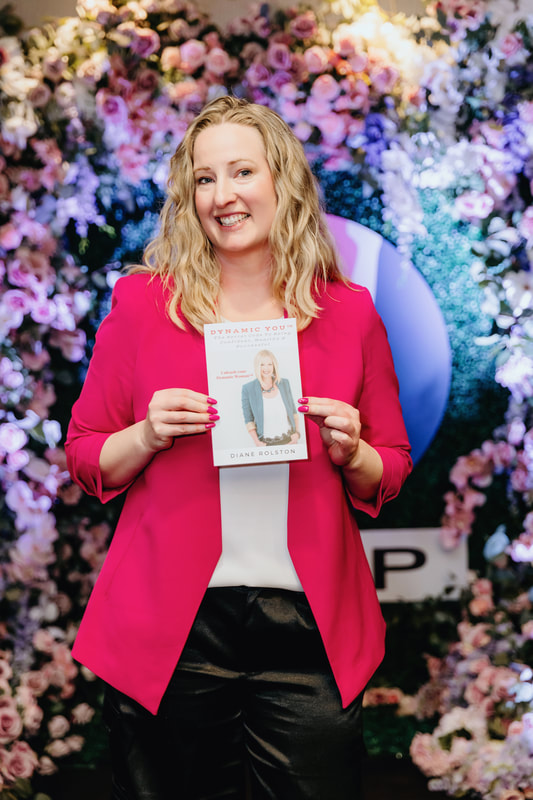


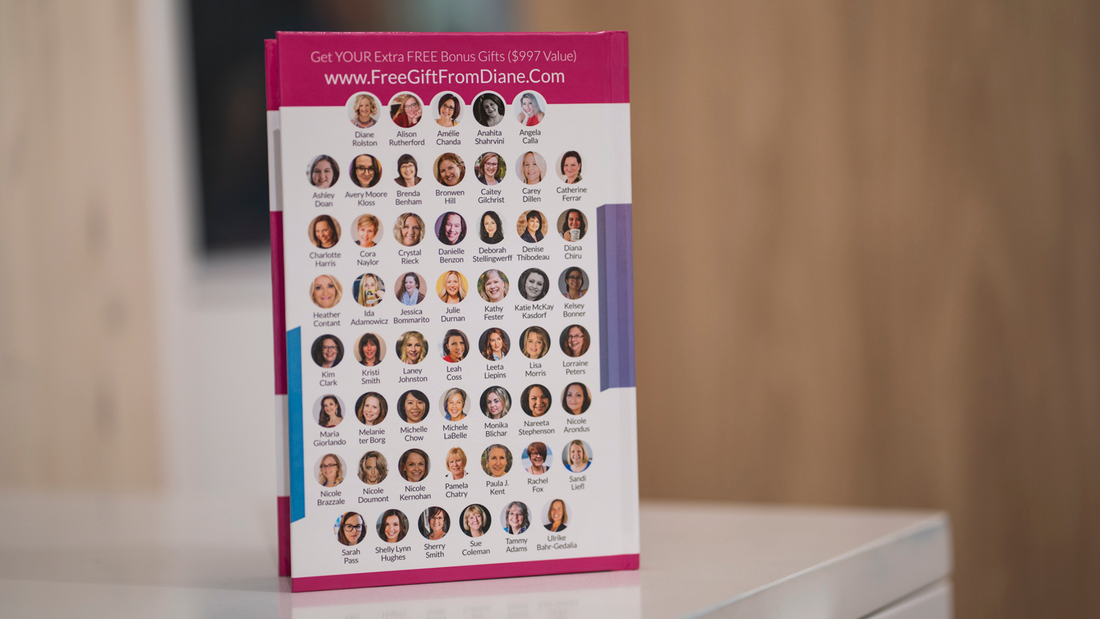

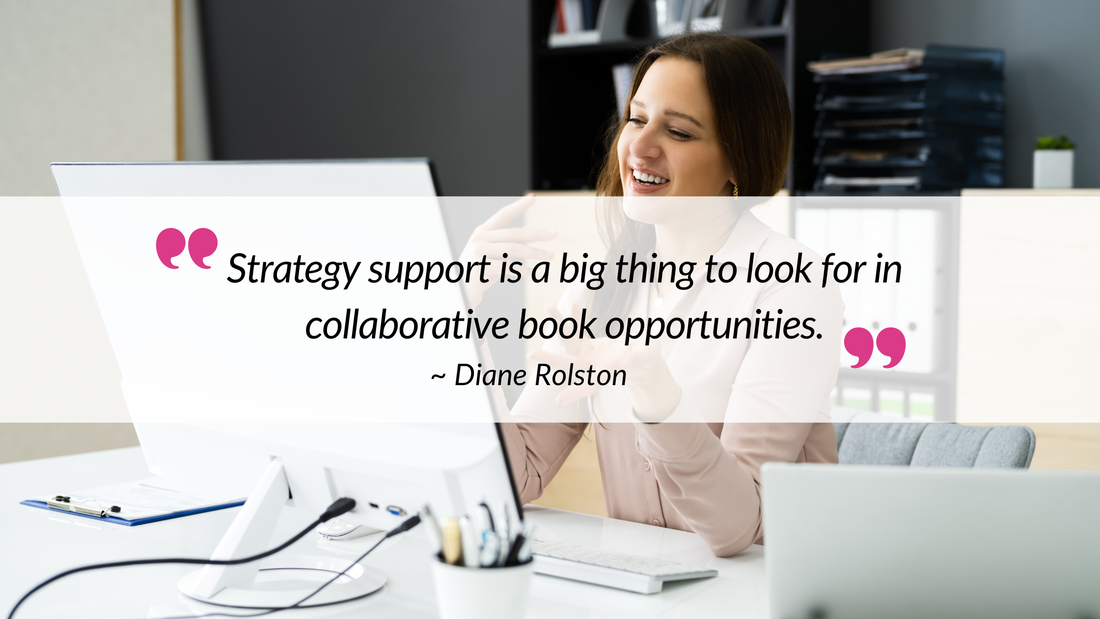
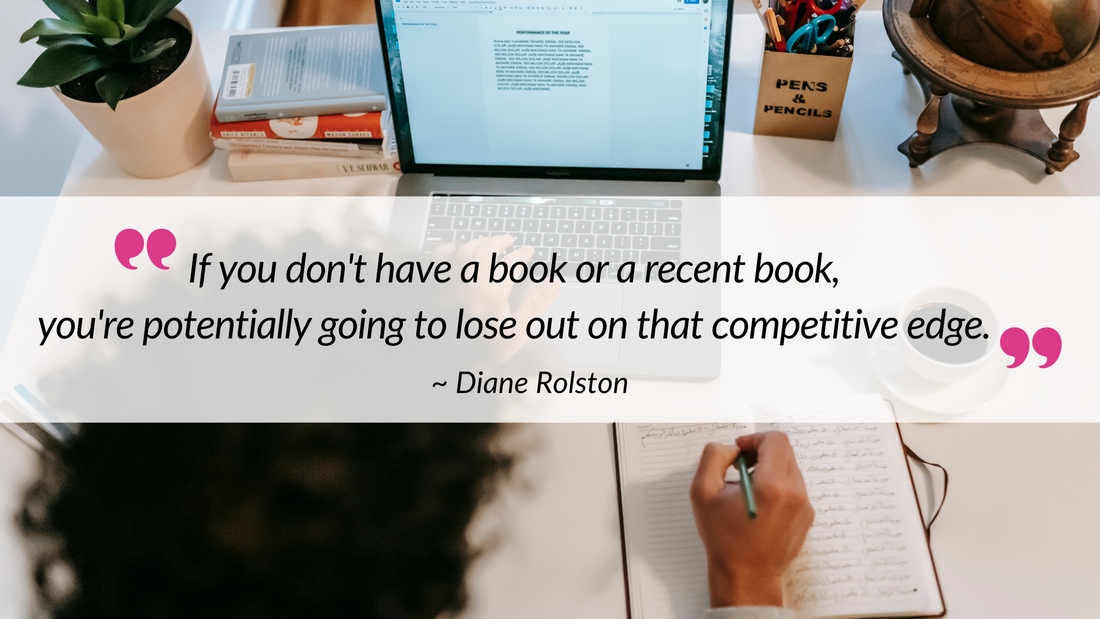

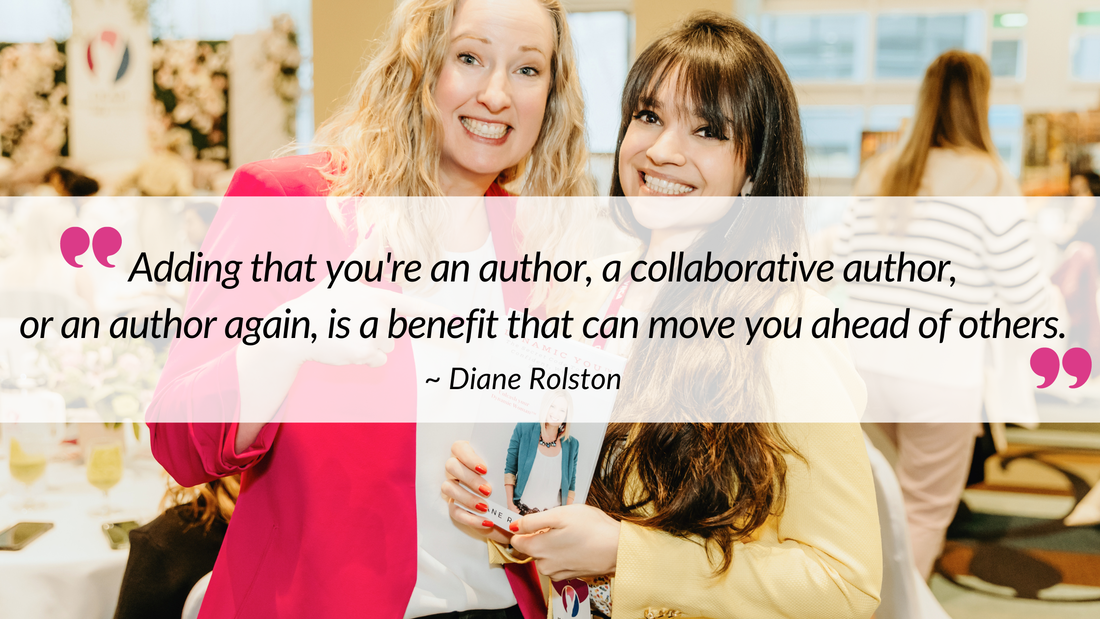
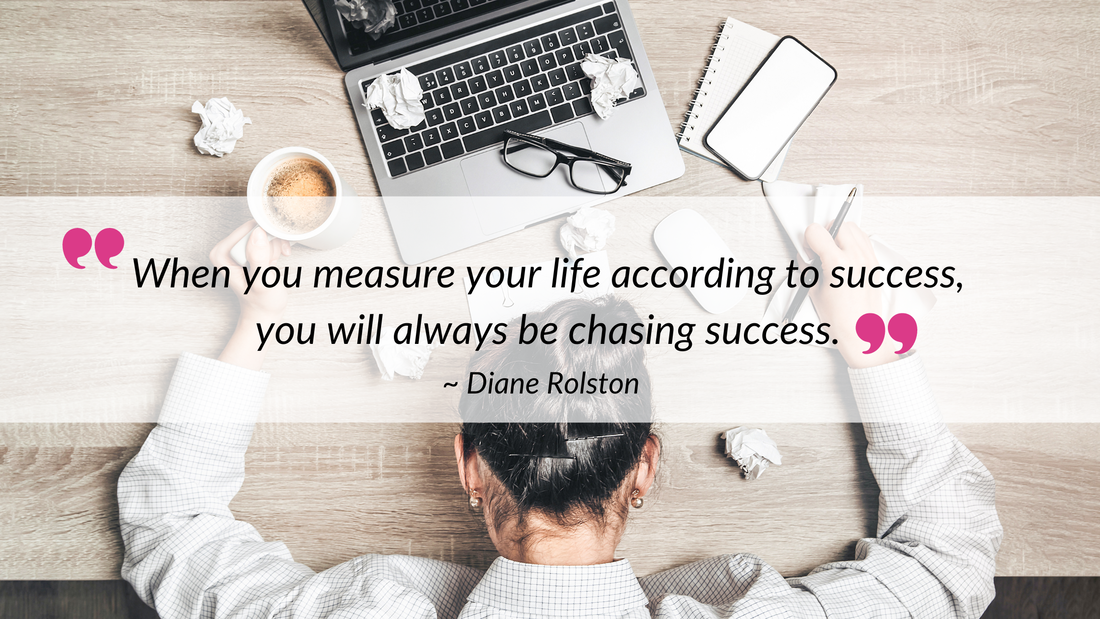
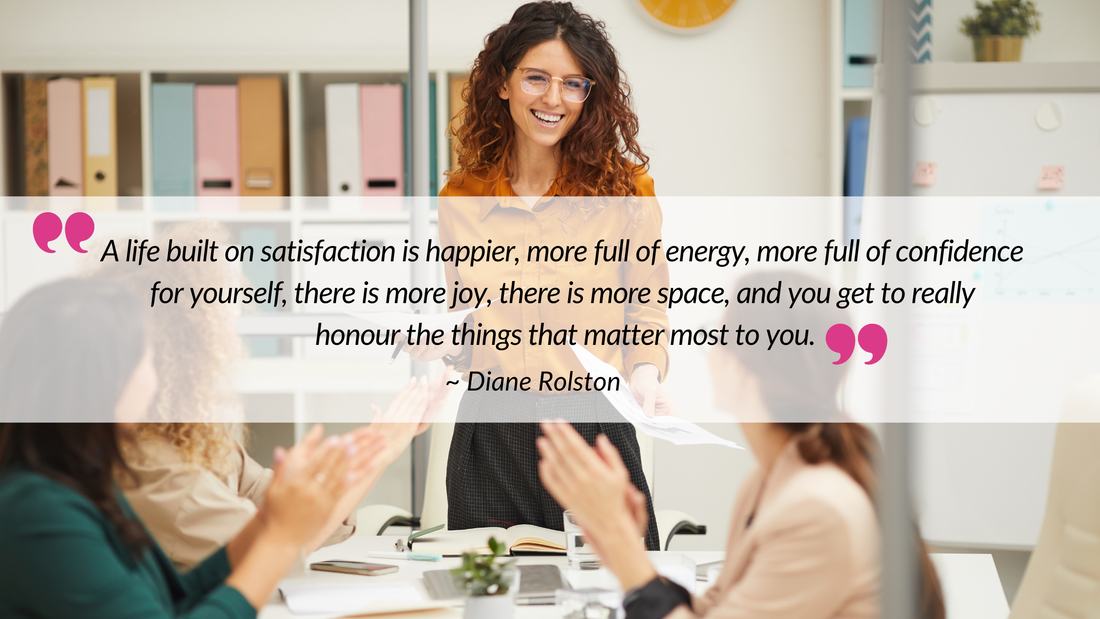
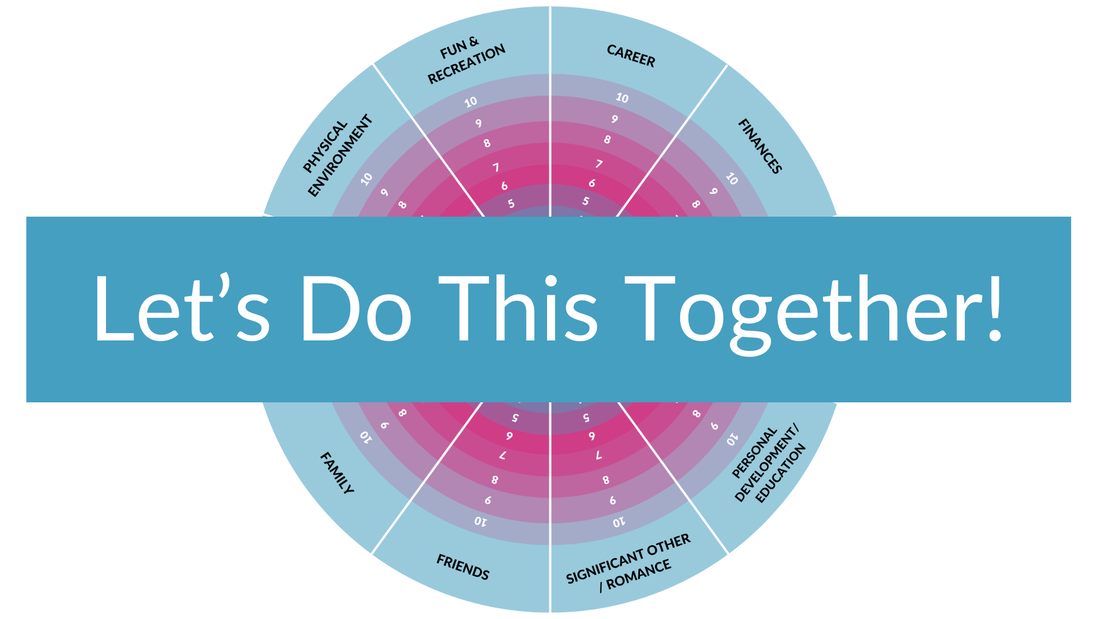

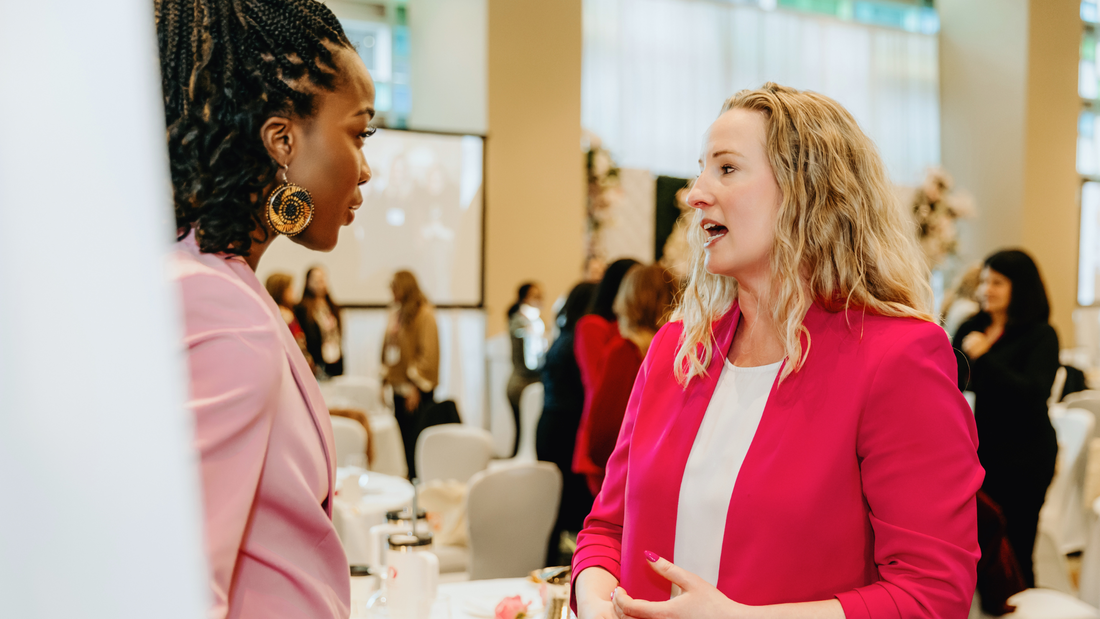















 RSS Feed
RSS Feed